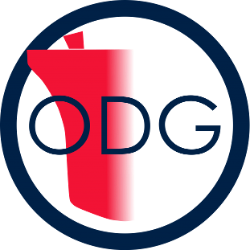Congratulations to the Ludgershall Team who won this year’s competition when 7 teams took part.
We were immensely grateful to Chris and James Mundy who came to judge and gave us useful comments (see below) to ponder. The teams were:
- Team 1 – Weston-on-the-Green: 5th place (Gerald, Mandy, Nick, Andy, Teresa, Kathryn) ringing call changes
- Team 2 – Islip B: 2nd place (Leandro, Marcus, William, Ricky, Teresa, Kathryn) ringing call changes
- Team 3 – Bicester: 6th place (Anne, Jeremy, Sue, Michael, Diane, Pinder) ringing call changes
- Team 4 – Ludgershall B: unplaced (Jill, Melanie, Sue, Lynda, Jan, Andy) ringing call changes
- Team 5 – Islip A: 3rd place (Teresa, Sally, Sue, Ricky, Leandro, Kathryn) ringing Grandsire Doubles
- Team 6 – Ludgershall A: 1st place (Jill, Anne, Jan, Andy, Richard, Michael) ringing Clifford’s Pleasure
- Team 7 – Kirtlington: 4th place – Christine, Julie, Ruth, Dan, Steve, Jeremy ringing plain hunt

Judges’ comments
Thanks for a very pleasant late afternoon. We enjoyed all the ringing and it was all very respectable. Thank you all for taking part.
As a general comment, we noted how important leading is to the whole change. If the leading is good the whole change tends to flow well whereas if the leading is a little out, it tends to rock the whole row and accumulate faults. This is especially the case if the leading is late.
In terms of marking, we scored 1 fault for a minor clip or irregular rhythm and 2 faults where 2 bells hit together with a maximum of 4 faults per row. In many striking competitions a minor clip attracts 1⁄2 fault and a major “hit” attracts 1 fault. We had intended to do this – but we forgot to halve the numbers when we announced the results – hence the faults might seem high!
Team 1 (149 faults)
The band rang call changes. This was generally a consistent piece of ringing. There were one or two specific changes which accumulated a high proportion of the faults, and this was particularly around the leading where some of backstroke leading was early and before the end of the previous change. The treble led well in this band.
Team 2 (90 faults)
This band rang call changes. This was a good piece of ringing. It started strongly and the rounds at the start were very good and accumulated very few faults. There were also lots of clear rows in the call changes which did not accumulate any faults. The main faults accumulated with slow leading and this was most prevalent at specific changes in the test piece where the majority of the faults were picked up. On the whole a very good piece of ringing.
Team 3 (165 faults)
The band rang call changes. The rounds at the beginning were rung well and did not accumulate many faults. There were certain changes which tended to accumulate the faults and many of these were caused by inconsistent leading. There were a number of late backstrokes which caused the change to pile up. The band accumulated lots of faults towards the end where perhaps nerves overcame them.
Team 4 (didn’t finish)
This band rang call changes. The band seemed to struggle with the bells a bit and did not finish. Many of the faults accumulated because some bells held up and then the ones behind crashed into them and this accumulated the faults. The tenor rang well in this band and we were sorry they didn’t finish.
Team 5 (94 faults)
The band rang Grandsire Doubles This was a good piece of ringing. The rounds were struck very well and picked up only a few minor faults. There were many clear rows within the changes and just a few rushed leads occasionally upset the rhythm. A number of faults arose half way through the 3rd course and then in the last couple of leads of the test piece – and this is where most of the faults accumulated.
Team 6 (85 faults)
This team left us in suspense as they only rang rounds for their practice! We thought the test piece was Reverse Canterbury. This was a very good and confident piece of ringing. The rounds were excellent and hardly picked up any faults. The ringing was generally good and consistent – the faults accumulated evenly throughout and no specific part seemed to cause particular challenge.
Team 7 (123 faults)
This team rang plain hunt, The rounds were good and accumulated only a few minor faults. The start of the changes seemed to cause some difficulty and a number of faults accumulated in the first couple of leads but then the ringing settled down and there were a large number of clear rows. The last lead caused some challenge and accumulated quite a few faults here which was a shame as some of the ringing had been very good. Generally the leading had been good throughout.
